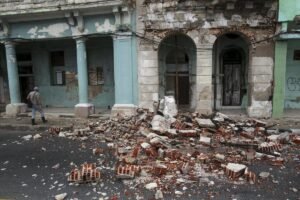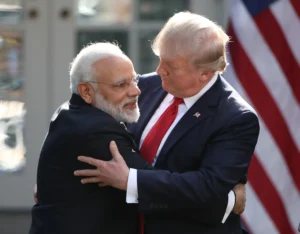
Israel Deploys Tanks Near Lebanon in Preparation for Ground Offensive

As tensions escalate in the Middle East, Israel has significantly increased its military presence along the Lebanese border, deploying tanks and preparing for a potential ground offensive against Hezbollah. This move follows a series of intense airstrikes aimed at dismantling Hezbollah’s military infrastructure, which have resulted in significant casualties and displacement in Lebanon.
Intensified Military Operations

In recent days, the Israeli Defense Forces (IDF) have conducted extensive airstrikes targeting over 2,000 Hezbollah positions across Lebanon. On September 25, 2024, Israeli military chief Lieutenant General Herzi Halevi confirmed that preparations for a ground invasion are underway. He stated, “We are relentless; we continue to strike and hit them at every opportunity,” emphasizing the goal of ensuring the safe return of residents displaced by cross-border clashes.The IDF reported that more than 636 people, including at least 50 children, have been killed due to Israeli airstrikes since the escalation began. The United Nations estimates that over 90,000 people have been displaced in Lebanon as a result of the conflict, with warnings that this number could rise to 500,000 if hostilities continue.
Ground Forces Mobilization

Israeli tanks and armored vehicles have been seen moving towards the northern border with Lebanon. The government has called up thousands of reservists to bolster its military presence in anticipation of a ground operation. Prime Minister Benjamin Netanyahu has vowed that military operations against Hezbollah will not cease until northern residents can safely return to their homes.
Hezbollah’s Response

In retaliation, Hezbollah has escalated its attacks on Israel, including launching long-range missiles aimed at Tel Aviv for the first time during this conflict. The missile was intercepted by Israeli defense systems before it could cause damage. Hezbollah claims that these attacks are in response to Israeli operations against its leadership and infrastructure.
International Reactions
The international community has reacted with concern over the escalating violence. U.S. President Joe Biden warned of the potential for “all-out war” in the Middle East and called for immediate de-escalation. Meanwhile, UN Secretary-General Antonio Guterres urged for an immediate ceasefire in Lebanon, highlighting the dire humanitarian situation as hospitals brace for an influx of casualties.The foreign ministers of Egypt, Iraq, and Jordan condemned what they termed “Israeli aggression against Lebanon,” warning that continued hostilities could lead to a broader regional conflict.
Conclusion
As Israel prepares for a possible ground offensive against Hezbollah, the situation in Lebanon remains precarious. With rising casualties and displacement among civilians, international calls for de-escalation grow louder. The coming days will be critical in determining whether diplomatic efforts can halt the violence or if military operations will escalate further, leading to a larger conflict in an already volatile region. The world watches closely as both sides brace for what could be a significant turning point in this ongoing struggle.
Discover more from
Subscribe to get the latest posts sent to your email.







